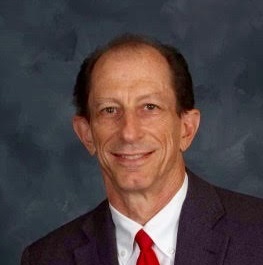.png?sfvrsn=188a2abf_0)
EPR for HHW and Batteries: Reducing Risk, Increasing Funding, and Effectiveness
November 14, 2025 - | Room C161-C162
Speakers
-
Kent Holm
Environmental Services Director
Douglas County, Nebraska -
Heidi Sanborn
Executive Director
Stewardship Action Foundation -
Tristan Steichen
Director
SWCA Environmental Consultants
Extended producer responsibility (EPR) laws have gained global traction and continue to gain momentum throughout the United States. Thirty-three U.S. states have enacted over 140 EPR-related laws covering a diverse array of products, from hazardous materials like mercury thermostats, batteries, and electronics to non-hazardous goods like mattresses and packaging. Vermont passed the first framework EPR law for household hazardous waste (HHW) in 2003, and California first introduced HHW EPR in 2008 and reintroduced the concept in 2024. Several other states are now exploring similar legislation. HHW EPR laws are critical for addressing a broad spectrum of hazardous products that can pose serious risks to public health and the environment if mismanaged. These laws also help prevent HHW from contaminating recycling streams and landfills.
This session explores the evolving EPR landscape with insights into compliance strategies, state-specific developments, and legislative momentum. It will provide a spotlight on Nebraska’s 2025 passage of LB 36, the Safe Battery Collection and Recycling Act — its first EPR law focused specifically on lithium batteries. Passed and signed into law in a single legislative session, and supported by SWANA, LB 36 is a model of strategic coalition-building and stakeholder engagement. Attendees will learn how a state senator and coalition of partners moved from initial education and message development to legislative drafting, bipartisan support, and final passage. The state is now actively building a voluntary collection network leveraging existing infrastructure ahead of a formal stewardship plan in 2028.
About the Speakers

Kent Holm
Environmental Services Director | Douglas County, Nebraska
As Director of Environmental Services for Douglas County, Nebraska, Kent Holm is responsible for solid waste management, environmental compliance, planning/zoning, building permits/inspections, stormwater and floodplain permitting, weed control, and landscape management on County campuses. He actively participates in several regional and national efforts, including chairing the Heartland 2050 Regional Planning Initiative’s Solid Waste Working Group. He recently served on both the Omaha Climate Action Planning Team, and the State of Nebraska Climate Action Planning Team. Kent is also involved with the Solid Waste Association of North America (SWANA) as Vice President and Legislative Advocate for the Nebraska Cornhusker Chapter, and a member of the SWANA National Core Advocacy Group and Lithium Ion Battery Work Group. Additionally, he serves on the Nebraska Recycling Council’s Advisory Council and is a member of the North American Hazardous Materials Management Association, the Product Stewardship Institute, and the National Stewardship Action Council, where he serves on the Advisory Committee. Outside of work, Kent enjoys officiating high school football, watercolor painting and pastels, birding, and traveling with his wife, Bobbi. They have four grown children.

Heidi Sanborn
Executive Director | Stewardship Action Foundation
Often called the godmother of Extended Producer Responsibility (EPR) in the U.S., Heidi Sanborn has led the solid waste and recycling industry for more than 30 years, working with government, industry, and the public to reduce waste, improve product design, and advance circular economy policies that protect public health and support fair, free markets.
A former Policy Advisor at CalRecycle’s predecessor agency, Heidi co-founded the California Product Stewardship Council in 2007 and later founded the National Stewardship Action Council (NSAC) and Stewardship Action Foundation (SAF) to expand circular economy solutions nationwide. Under her leadership, NSAC has shaped legislation, sponsored and helped pass landmark laws, and established the first U.S. eco-modulated fee, setting national precedents for producer responsibility. A sought-after speaker and educator, Heidi has earned top honors from NAHMMA, Waste360, and the National Recycling Coalition, with features in Time, The Wall Street Journal, and NPR.

Tristan Steichen
Director | SWCA Environmental Consultants
Tristan Steichen is a Strategy Management Director at SWCA Environmental Consultants. Tristan has more than 30 years of experience with global consumer product companies developing sustainability strategies, including the financial quantification of sustainability risks (including new legislation) and the business benefits of alternative solutions. Tristan's technical expertise focuses on recycling and circular economy system implementation.
Tristan also serves as the Executive Director of the National Lubricant Container Recycling Coalition. Tristan has been leading the NLCRC since its inception in 2020. Initially focused on building a national recycling program for lubricant packaging, the NLCRC has expanded to include legislative advocacy, with a focus on Extended Producer Responsibility and other packaging-related legislation.






